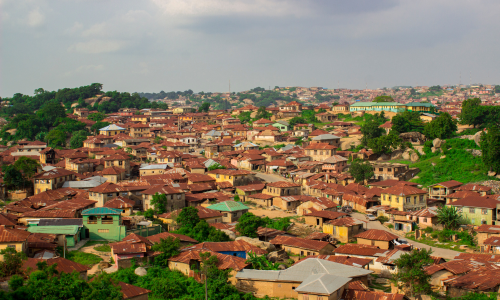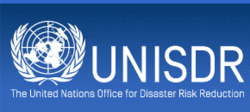16 May 2014
African Countries Adopt Common Position on Post-2015 DRR Framework




The meeting, which convened in Abuja, Nigeria, from 13-16 May 2014, brought together over 900 participants representing, inter alia, national and local governments, regional economic communities, donors, UN organizations, non-governmental organizations NGOs, and academic, scientific and technical institutions. In addition, community practitioners, persons with disabilities, youth, and representatives of women’s groups and the private sector also attended.
The main goal of the meeting was to forge a common position among African countries on a post-2015 DRR framework focused on building institutional and community resilience in Africa. Participants met in plenary and in parallel thematic sessions to consider, inter alia: achievements and challenges of the Africa Regional Strategy for Disaster Risk Reduction, as well as the Hyogo Framework for Action 2005-2015 (HFA); risk-sensitive planning and management and financing; the integration of DRR and climate change adaptation for resilience; the role of national platforms for DRR; ecosystem-based DRR; and leadership and investment for DRR mainstreaming.
Speakers at the meeting stressed, inter alia, that: Africa would suffer most from climate change in the areas of water scarcity/drought, food insecurity and ill health; climate change has the potential to exacerbate and multiply existing threats to human security; both overexploitation and climate change lead to natural resource degradation; climate-resilient pathways to development must be followed; stronger links must be forged between meteorological departments, agriculture and disaster managers; and climate change will be felt more strongly where governance is weak. Participants also called for the post-2015 DRR framework to strengthen hydrometeorological services, and address the issue of urban risk and climate change. The meeting drew attention to the fact that, while the Intergovernmental Panel on Climate Change (IPCC) found Africa to be the most exposed region to climate change, African countries are the least engaged in the IPCC process.
The meeting adopted a Summary Statement, reflecting a common African position on the post-2015 DRR framework, which contains recommendations related to: regional risk factors and institutional frameworks; integrating DRR and adaptation; investing in DRR; and duration of the post-2015 framework. More specifically, the Statement calls for, inter alia, enhancing legislation and regulation that address disaster risks; increasing technical capacities of institutions for monitoring and analyzing hazards; prioritizing efforts that address urban risks; enhancing public-private partnerships; adopting post-2015 DRR framework with a duration of at least 10 years; implementing DRR in line with a rights-based approach; allocating a greater portion of public budgets to DRR; institutionalizing engagement with civil society; and establishing clear accountability and monitoring and evaluation mechanisms.
The meeting also adopted a Ministerial Declaration containing decisions related to, inter alia: ensuring incorporation of Africa’s contribution into the global post-2015 DRR framework; and enhancing and strengthening collaboration among all stakeholders. It also calls on the UN International Strategy for Disaster Reduction (UNISDR) to continue providing institutional support for regional coordination and monitoring of DRR implementation. In addition, representatives of stakeholder groups adopted voluntary commitments.


